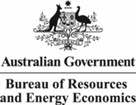PROGRESS 2050: Toward a prosperous future for all Australians
30/06/2012
A world first study that provides long-run projections of the cost of electricity generation for 40 technologies, has been released at a special CEDA event in Melbourne.
The Australian Energy Technology Assessment (AETA) has been developed by the Bureau of Resources and Energy Economics (BREE) and is one of the key accompanying studies underpinning the Federal Government's Energy White Paper due for release later this year.
BREE Chief Executive Director and Chief Economist, Professor Quentin Grafton said key results of the report were that: "Photovoltaic and onshore wind are expected, with all the uncertainties of projecting out many decades, to have lower cost of electricity generation out in the long-term."
"Among the non-renewables we have combined cycle gas - in later years combined with carbon capture and storage - and nuclear power, offering the lowest levelised cost of electricity (LCOE) and they remain cost competitive relative to the lower cost renewable technologies out to the later years."
Professor Grafton said there were two aspects to the AETA, one was report and the second was the model.
"The difference between us and other studies is we have a model that is publically available for use by...anyone in the world," he said.
By using the model, he said various costs for technologies could be changed, such as operating and maintenance or the carbon price, to calculate the levelised cost of the electricity for different technologies under different scenarios.
Professor Grafton said the assessment would be completed biennially with updates completed biannually with the next scheduled for March 2013.
Federal Department of Resources, Energy and Tourism, Secretary, Drew Clarke said this was actually the second AETA, with the first released in 2009, the key difference this time being that the assumptions are explicit and the model is publicly available.
"Australia needs a mature and ongoing debate around its energy choices, this in particular is where the AETA plays a role. A mature debate is one where facts and assumptions are transparent and that is really the key function of AETA," he said.
He said the assessment was already being used by the Australian Energy Market Operator and on the policy side, it would be used by the department in completing the Energy White Paper.
"I expect that various interest groups will disagree with the numbers...that's healthy and appropriate, but what we want you to do is say exactly what, within the various parameters, that you disagree with, put your number in, and you will be able to do this, and see what difference it makes," he said.
He said it was this level of debate and discussion that they wanted from the release of the assessment.
On questioning about the inclusion of nuclear, Mr Clarke said: "the Government policy on nuclear is clear... (but) I think it was simply appropriate that BREE include what is known about the global price of nuclear in this assessment for comparative purposes but no signalling of policy change was intended or should be implied."
This event was jointly hosted by CEDA and BREE.
 |
 |
|
